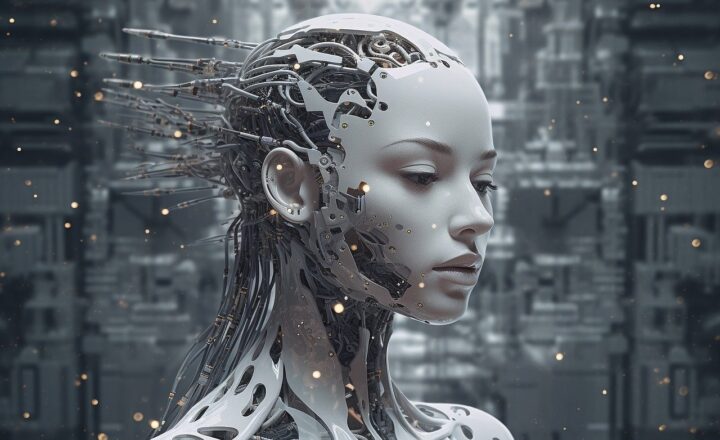
Artificial Intelligence (AI) has become one of the most transformative technologies of our time. With its rapid development and integration into various sectors, it promises to change the way we live, work, and interact. However, along with its advantages, AI also raises significant ethical concerns and fears of job displacement, privacy violations, and even existential risks. In this article, we will explore the dual nature of AI, illustrating how it can be both a powerful tool for good and a potential source of unforeseen dangers.
1. Understanding Artificial Intelligence
AI refers to the simulation of human intelligence in machines programmed to think and learn like humans. This includes capabilities such as problem-solving, reasoning, understanding language, and perceiving the environment. AI can be categorized into two main types:
- Narrow AI: This type of AI is designed for a specific task, such as facial recognition, language translation, or self-driving cars. Most AI systems today fall under this category.
- General AI: A theoretical form of AI that would possess the ability to understand and learn any intellectual task that a human can do. General AI remains a concept, as no systems currently exhibit this level of intelligence.
AI influences many aspects of modern life, from virtual assistants like Siri and Alexa to recommendation algorithms used by Netflix and Amazon. Its applications span across various industries, including healthcare, finance, education, and even agriculture. However, these advancements prompt the question: Is this progress beneficial to humanity, or could it lead to disaster?
2. The Benefits of Artificial Intelligence
AI offers numerous advantages that enhance efficiency and effectiveness across many sectors:
- Improved Efficiency: AI can process large amounts of data quickly and accurately, often surpassing human capabilities. This efficiency can lead to significant time and cost savings in various industries, from manufacturing to customer service.
- Enhanced Decision-Making: AI systems provide data-driven insights that can help organizations make better decisions. In healthcare, for example, AI can analyze patient data to suggest diagnoses or treatment options that humans may overlook.
- 24/7 Availability: Unlike humans, AI does not need breaks and can operate continuously. This is especially useful in customer-facing applications where support can be provided around the clock without interruption.
- Personalization: AI algorithms can analyze user behavior and preferences to tailor recommendations and experiences, leading to enhanced customer satisfaction and loyalty.
As beneficial as these features are, they come with a cautionary tale. The more we rely on AI, the more we must contemplate the ethical and moral implications of its use.
3. The Dark Side of Artificial Intelligence
While AI has the potential to revolutionize sectors, it also raises fears and concerns:
- Job Displacement: As machines become capable of performing tasks traditionally done by humans, there is a growing fear of unemployment. Repetitive jobs are particularly at risk, prompting serious questions about the future of work and the economy.
- Bias and Discrimination: AI algorithms are only as good as the data they are trained on. If the training data is biased, the AI systems can perpetuate or even amplify existing inequalities, leading to discriminatory practices in areas such as hiring or law enforcement.
- Privacy Concerns: AI systems often require access to sensitive data, leading to potential misuse. The collection of personal information raises important questions about consent and how this data is used and stored, creating a scenario ripe for exploitation.
- Autonomous Weapons: The use of AI in military applications raises significant ethical dilemmas. Autonomous drones and weapons systems may operate without human oversight, leading to unintended consequences in conflict scenarios.
These concerns illustrate that while AI can create remarkable efficiencies, it is crucial to establish ethical guidelines and regulations to govern its development and use.
4. Ensuring Ethical AI Development
Creating AI systems that serve society positively requires deliberate planning and ethical considerations. Here are key principles that should guide AI development:
- Transparency: AI processes should be transparent, allowing users to understand how decisions are made. This transparency can foster trust and enable better accountability in the use of AI technologies.
- Fairness: Developers must work to recognize and eliminate biases from their AI systems. Ensuring equal treatment for all users is essential in promoting a fair society.
- Accountability: Clear accountability frameworks must be established for AI developers and users to ensure responsible use and to mitigate risks associated with AI deployment.
- Sustainability: AI systems should contribute to long-term sustainability goals, minimizing their environmental impact and fostering solutions for climate change through smarter resource management.
Policies need to be created and enforced to ensure that innovation proceeds alongside ethical considerations, creating a future where AI uplifts rather than undermines society.
5. The Future of Artificial Intelligence: A Balancing Act
The path forward for AI presents a balancing act between embracing innovation and controlling its potential hazards. Governments, corporations, technologists, and citizens must collaborate by establishing robust frameworks and laws surrounding AI. Furthermore, educational programs should prepare current and future workers for the changes that AI will continue to bring to job markets around the globe.
Promoting public awareness of AI’s capabilities and risks is equally crucial. As users become informed participants in conversations about AI, they will be better equipped to shape the future of this technology.
Ultimately, the question remains: Is AI the future or our worst nightmare? The answer is not straightforward. The impact of AI largely depends on the choices we make today and the values we instill in the development of technology. By prioritizing ethical standards and social responsibility, we can harness the power of AI for the greater good.
Conclusion
AI is undeniably one of the most powerful technological advancements of our time. Its ability to transform industries and improve quality of life is immense. However, it is vital to recognize potential pitfalls and ethical dilemmas that come with it. By focusing on responsible AI development, we can ensure that AI serves as a tool for positive change rather than a source of conflict or harm.
As we venture further into the AI-driven future, proactive engagement in the discussions surrounding its implications will be key to ensuring that it benefits humanity as a whole instead of exacerbating existing inequalities and challenges.






